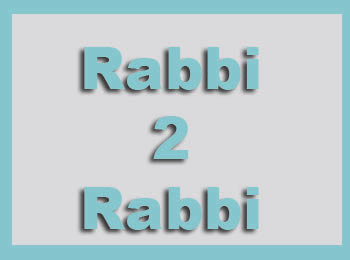The two roles might seem quite different, but the common thread is Torah study
Rabbi Avi Finegold
FOUNDER, THE JEWISH LEARNING LIBRARY, MONTREAL
Rabbi Philip Scheim
BETH DAVID B’NAI ISRAEL BETH AM CONGREGATION, TORONTO
Rabbi Scheim: One of my earliest memories in my role as a congregational rabbi is my very first funeral. At that point in life, I had attended very few funerals, and now I was expected to take charge, to help the mourners through their grief. Somehow I overcame my sense of cosmic inadequacy, got through the service, satisfied the family’s needs and settled into what would become a major piece of my congregational rabbinate.
My entire three-plus decades in the rabbinate have been based in one congregation. I have named babies whose mothers I had also named, and on many occasions, have witnessed the fulfilment of the prayer recited at a baby naming when those babies, having grown into adulthood, have stood under the chupah. But longevity in a congregation has its sadder moments as well, as those who were in middle age and at their intellectual peak when I arrived, reach old age and infirmity. Losses in the congregation, as time passes, have become more personal.
Rabbi Finegold: I always assumed that pulpit rabbis were generalists, akin to GPs in medicine, who knew how to do enough of everything to be the go-to person for everything Jewish in a community. My role, on the other hand, was to be a specialist, the person who is contracted to help congregations take their Jewish learning to the next level.
Do you think that this difference might be denominational? Are there fewer halachic queries in Conservative Judaism and a bigger emphasis on rituals that move us from one phase of life to another? Are there parts of your training that are underutilized?
Rabbi Scheim: True, my most meaningful memories of my rabbinate are life cycle related. It is in these interactions with families at their moments of greatest vulnerability (simchahs as well as sadness) that moments of greatest meaning are achieved. But you are correct in assuming that a congregational rabbi is somewhat of a GP, because we do a lot of different things, which for me, was the attraction.
My regret is not that aspects of my training are underutilized, but rather, that the multiplicity of commitments my daily schedule entails limits my personal Torah Lishmah my own study of Torah for its own sake (literally, for its name), not in connection to sermon or class preparation. I know that this lament is shared by many congregational rabbis.
Rabbi Finegold: While I empathize with your regret, I find my specialty containing Torah Lishmah in it as its greatest strength. I find there is no better way to learn something than to learn it well enough to teach it.
Sadly, many people do not see this as an important value. Sometimes I wonder if communal rabbis could be better allies. In my experience, many rabbis are too busy to develop high quality adult education programming in their congregations, and even those that do, usually deplete the interests and specialities they developed in rabbinical school within a few years and begin to recycle them. I wish more rabbis would begin to use specialists to bring robust programming to their congregations, and use the pulpit to address the value of lifelong learning.
Rabbi Scheim: Ideally, a full-time rabbi/educator who specializes in adult learning would be part of a synagogue staff. I would welcome such a hiring, as would the vast majority of my colleagues, but tight synagogue budgets usually preclude such appointments.
I am not sure we have confronted the consequences of the pace of technological change in today’s world. Will millennials attend classes in the synagogue, no matter how inspiring and how erudite they may be, when their leisure world is centred on Facebook and Twitter?
Rabbi Finegold: I actually think you underestimate so-called millenials. They are, after all, the segment of our population that have most recently left universities. They are the most used to sitting in a lecture and learning from a teacher.
As an educator, my takeaway from seeing so many Jewish learning resources online is that none of them are really about the medium. While I agree with Marshall McLuhan about the medium being the message, looking at the content of these sites, I am struck by the depth of learning that they convey to the user. My drash on McLuhan is that great messages often gravitate to the best medium available.
